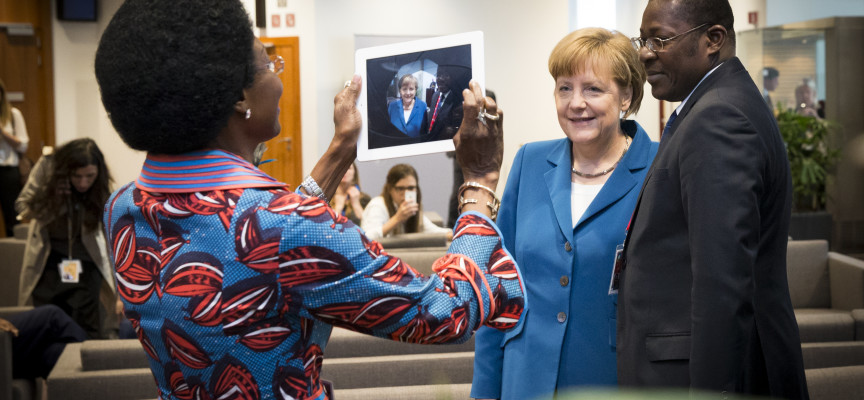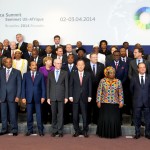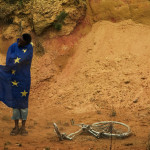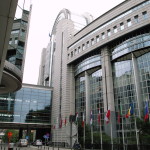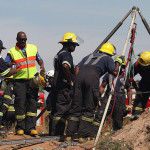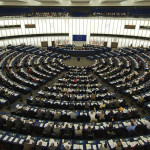This was a Summit with neither winners nor losers, where African and European leaders strived to defend the status quo rather than reach more ambitious goals.
This is a good way to summarize the outcome of the EU-Africa Summit which took place in Brussels on April 2nd and 3rd: a two-day meeting that was characterized by a great deal of institutional “fair play” to avoid clashes, but disappointed those who expected continental relations to be effectively relaunched.
This clearly transpires from the way EPAs have been handled; EPAs are economic partnership agreements that the EU and African States have been working on for more than two decades, with constant delays. Considering the tensions that have characterized the last few months, the official choice was to set this subject aside, and vaguely call for further negotiations.
A similar comment could apply to climate change, since the signing of a binding agreement between the parties was postponed until 2015.
The long-awaited statement on migrations also appears to be lukewarm and abstract, with no specific guidelines for action.
However, if we read between the lines, we can detect some timid signs of hope from this Summit. First of all, the participation of heads of State and government (about 90 delegations attended) with African leaders choosing not to back Zimbabwean President Mugabe’s attempt to boycott the Summit. The only notable and significant absences were UK Prime Minister Cameron for Europe and South African President Zuma for Africa.
We cannot forget the green light that was given to the EU mission to the Central African Republic (EURFOR RCA), which was the only real achievement that came out of this Summit, albeit with some shadows if we consider German and British disengagement, with both countries committing to provide only logistical support. Taking action is all the more necessary considering the humanitarian tragedy that is plagueing the country. There were some attitudes that were markedly different from the past, especially as far as Africa is concerned.
During the final press conference, while European Commission and Council Presidents Barroso and Van Rompuy were boasting about EU resources that have been earmarked to help Africa – 28 billion euros between 2014 and 2020 – African Union Commission President Dlamini Zuma underlined the comparative advantages that might derive from both continents’ complementary character in industries such as farming, manufacturing, tourism and fisheries.
This is happening because African leaders, perhaps more than their European counterparts, have realized what is really at stake: the future of 10 million young Africans who enter the labor market every year and often find themselves without a job.
The challenge of Africa’s industrial and agricultural development must be won, if we want relations between the two continent to really become virtuous and, especially, if we want avoid turning Lampedusa into the largest European city and the Mediterrenean sea into the biggest graveyard.
Un Summit senza vinti né vincitori, dove i leader di Africa ed Europa hanno puntato più a difendere le proprie posizioni che non a raggiungere i propri obiettivi.
Può essere riassunto così il bilancio dell’Eu-Africa Summit di Bruxelles del 2 e 3 aprile scorsi. Una due giorni caratterizzata da un “fair play” istituzionale che ha evitato scontri, ma che ha deluso quanti si aspettavano dall’incontro un sincero rilancio della relazione tra i due continenti.
Lo si capisce ad esempio guardando al tema degli EPAs, gli accordi di partenariato economico su cui l’Unione europea e gli Stati africani lavorano da oltre un decennio con continui rinvii. Di fronte alle tensioni degli ultimi mesi si è scelto di tenere, almeno ufficialmente, il tema da parte limitandosi a un astratto invito a proseguire i colloqui.
Un discorso analogo può essere fatto per i cambiamenti climatici, per i quali si è deciso di rimandare al 2015 la firma di un accordo vincolante tra le parti.
Anche l’atteso pronunciamento sulle migrazioni appare tiepido e astratto, senza precise modalità d’intervento.
Ma, a leggere bene tra le righe, possiamo cogliere anche timidi segnali di speranza emersi dal Summit. Prima di tutto la partecipazione dei capi di stato e di governo (circa 90 delegazioni presenti) con la scelta dei leader africani di non assecondare il tentativo di boicottaggio promosso dal presidente dello Zimbabwe, Mughabe. Uniche pesanti eccezioni, da annotare, l’assenza sul fronte europeo del premier inglese Cameron e, su quello africano, del presidente sudafricano Zuma.
Non possiamo poi dimenticare il via libera alla missione Ue in Repubblica Centrafricana (EURFOR RCA), unico vero successo dell’incontro, seppur con qualche ombra come lo smarcamento di Germania e Regno Unito che forniranno solo sostegno logistico. Un intervento quanto mai doveroso di fronte al dramma umanitario che si sta consumando nel Paese. Vi sono alcuni atteggiamenti che hanno segnato un elemento di discontinuità rispetto al passato, soprattutto sul fronte africano.
Durante la conferenza stampa di chiusura, mentre i presidenti di Commissione e Consiglio Europeo, Barroso e Van Rompuy, snocciolavano i numeri delle risorse stanziante dall’UE a favore dell’Africa, circa 28 miliardi di euro dal 2014-2020, il presidente della Commissione dell’Unione africana, Dlamini Zuma, sottolineava i vantaggi comparativi che potrebbero nascere dalla complementarietà di Africa ed Europa in settori come l’agricoltura, lo sviluppo industriale, il turismo e la pesca.
Questo perché i leader africani, forse più della controparte europea, hanno in mente la posta realmente in gioco: il futuro di quei 10 milioni di giovani africani che ogni anno entrano nel mercato del lavoro e si ritrovano, in molti casi, senza occupazione.
Una sfida – quella dello sviluppo industriale e agricolo del continente – da vincere, se vogliamo che la relazione tra Africa ed Europa diventi realmente virtuosa e, sopratutto, se vogliamo evitare che Lampedusa diventi la città più popolosa d’Europa e il Mediterraneo continui a essere trasformato nel più grande dei cimiteri.
Michele Luppi
www.africaeuropa.it
Latest posts by Michele Luppi (see all)
- How can Europe do that? - 16 aprile 2016
- A raw nerve in european consciousness - 23 luglio 2015
- The cry of the dead of Garissa - 18 aprile 2015

